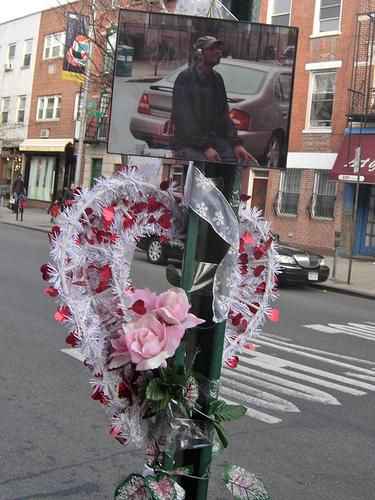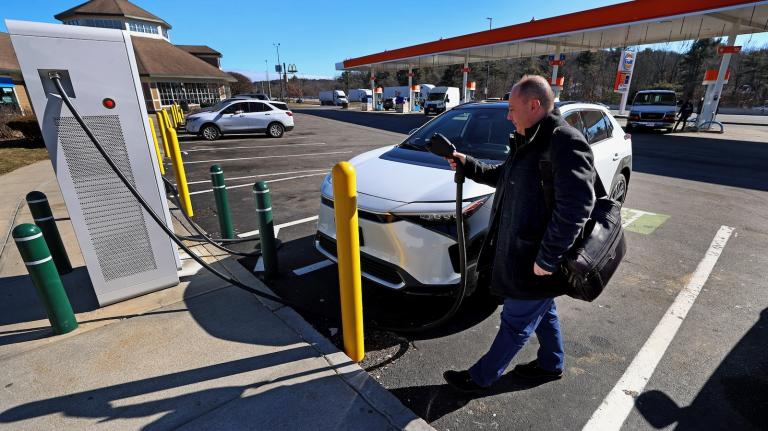 We found out Tom was gone when we saw this.Photo: Sarah GoodyearTo the extent we ever mentioned him at all, it wasn’t by name. He was just “the guy outside the bodega next to Sam’s Pizza,” or, “that guy who always holds the door for you at the bodega.” We didn’t actually know his name. Until he was gone.
We found out Tom was gone when we saw this.Photo: Sarah GoodyearTo the extent we ever mentioned him at all, it wasn’t by name. He was just “the guy outside the bodega next to Sam’s Pizza,” or, “that guy who always holds the door for you at the bodega.” We didn’t actually know his name. Until he was gone.
His name was Tom. We found that out a couple of days after he died of stomach cancer, from the little memorial set up outside the store where he could be found at almost any hour of the day.
Tom was tall and lean and it seemed like he was pretty much always smiling. He wore headphones a lot of the time, and I realize now that I’m not sure I ever heard him speak.
As far as I know, he wasn’t officially employed by the owners of the bodega. But he was always sitting there, keeping an eye on the flowers for sale out front, helping customers who needed a hand with the door or their bags or a stroller. If you gave him a dollar, he would touch his cap and nod and smile a little more. If you didn’t give him a thing, but just said hello, you got the same treatment.
I thought of Tom when I read a recent Washington Post story about Carlos Guardado, who ran a burrito cart at Farragut Square in Washington, D.C., for 20 years. At age 48, he died of a heart attack, and his regular customers got the news when they showed up to buy lunch. They found instead a handwritten sign from Guardado’s brother that told of his passing.
Here’s how the Post described some of the reactions:
A man in a tailored suit read the words, touched his open mouth and lowered his head into his hand. Two women hugged, one crying openly. They came to the cart at least once a week, the other said, usually together.
“No! Oh my God,” cried Pat Pasqual as she stopped in her tracks. She had bought countless cups of coffee from the cart that was no longer there.
“I’d like to talk about him, but I don’t think I can right now,” said Robert Tigner, a lawyer for a professional association across the street, his voice breaking as he read the notice.
All day, they came, lawyers and interns, lobbyists and vagrants, working folks who had made Guardado a part of their routine, suddenly realizing that the burrito guy had found his way into their hearts.
“I guess we became friends. We did become friends,” Tigner said later by phone. The lawyer marveled that he’d spoken with Guardado almost every workday for 10 years.
This is the thing about living and working in a city where life happens on the street, where the people on the sidewalk are as important as the buildings that line the boulevards. You have the chance — the great and wonderful chance — to meet people like Tom, and like Carlos Guardado. You might talk to these people more often than you do to the people you call friends. You might tell them things you don’t tell anyone else.
Or maybe, as it was with Tom and me, you might never exchange a word. Just the little look that said, I am here, and you are here, and I am glad to see you. One of the graces of urban life.



